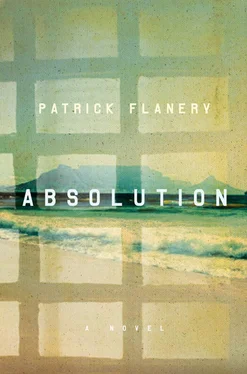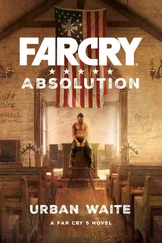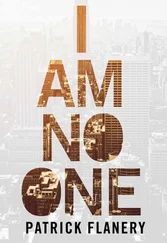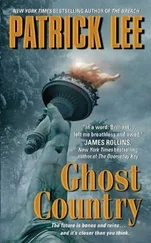‘It’s like a story she published early in her career,’ I tell Greg, ‘like a self-fulfilling prophecy.’
‘Read it to me,’ he says, making dinner while Dylan sits in his highchair playing with a toy that helps him learn the alphabet. He sings along with it.
‘I don’t have it here, but I can tell you about it. It’s called “The Prisoner”. In it a blind academic who made his reputation attacking a growing tide of philistinism in public life falls out of favour when a reactionary government comes to power — a particularly philistine government. The academic is dismissed from his position at a university, stripped of his pension, evicted from his home, and because he’s homeless and jobless (and vagrancy and unemployment are outlawed under the laws of the new government) the authorities detain him. Now, because the prisons are filling up and because the new government doesn’t value knowledge or art, they convert all museums and libraries into prisons, and inmates are expected to use the contents of those places, those palaces of culture, as fuel — to burn books and artworks to keep themselves warm. So along with several hundred others, the blind academic is locked inside the Central Reading Room of the National Library. Every day, guards bring the prisoners two meals so they won’t starve, and that slight edge of hunger keeps their minds even more alert. They have access to the toilets, because the government prizes hygiene above almost anything else. The detained academics make beds from old encyclopaedias and sleep under the library tables, and when winter comes and the heating is inadequate they burn newspapers and periodicals for as long as they can, then start to burn all the commercial fiction, and finally have to hold votes to decide which worthy books should be burned — in other words, to decide which works are less worthy than others. Of the classics, Dickens and Shakespeare are the first to go by unanimous agreement, not because they all hate Dickens and Shakespeare, far from it, but because they’re certain that the library holds nothing unique from those writers and they won’t be destroying anything irreplaceable. Dickens and Shakespeare, the logic goes, are everywhere since their works have been reproduced in their millions.
‘The blind academic can’t read during this incarceration because there aren’t any books in Braille in the library, so the other prisoners read to him in turns, and he finds that he’s happier than he’s ever been before in his life. He no longer has to worry about publishing, or about the purchase and preparation of food, or reading through his fingertips. He is happy to wait for food to be brought to him, books to be read to him, a bed of leather and felt stripped from the library tables to be made for him. The other prisoners petition the guards for paper and ink, using the pornographic eighteenth-century titles they’ve discovered in the rare books collection as items of barter, and begin taking dictation for the blind academic, as well as writing themselves.
‘When the reactionary philistine government eventually falls, as the story suggests is inevitable from the beginning, the political prisoners being detained in the libraries and museums are liberated. The blind academic, however, begs to be allowed to remain in his place of imprisonment. His former fellow prisoners enter pleas on his behalf, and the new government agrees that a small cell will be constructed for him, in the corner of the reading room, where he has spent so many happy years against his will. His friends look after him, bringing him two meals each day (to maintain that mind-sharpening edge of hunger), reading to him in turns and taking dictation. At night, the guards lock him in, and he sleeps soundly, listening to the silence of the books that surround him, expecting nothing of him, except that he listen when they speak.’
Greg smiles as Dylan sings ‘l, m, n, o, p’. ‘That’s very good my boy,’ he says, and shakes his head at me, his attention always divided. ‘You know what I think, Sam. It’s not healthy to be so obsessed.’
‘Is it obsession?’
‘You know everything about Wald that it’s possible to know. You know her works backwards.’
‘But that’s what my job is. I agreed to write this book. I was the natural choice, even if I’m the only one who knows that’s the case.’
‘And you don’t see any ethical problem in that?’
‘I’m not letting it — I’m trying not to let it affect me. I’m trying to be unbiased. I know how to be objective.’
‘I wouldn’t be able to do it if I were you. If it had happened to me. If she had done to me what she did to you, given the circumstances, given what should have been obvious about the state you were in — I mean, I can only imagine the state you must have been in.’
I don’t know how to answer. On the one hand, Greg is right — there is something unethical about my role in the project. But I don’t know what other choice I have.
Clare switched on the monitor to find the same government car that had come before waiting on the street outside her front gate. Ms White’s monochrome face stared, unblinking, into the lens. It was eight in the evening and Clare could no longer remember how many weeks or months it had been since the woman’s last visit; perhaps three weeks, perhaps six months or a year or more. Clare pressed the intercom to speak.
‘You are here at an inconvenient time. I am about to go to bed,’ she said, and switched on the security floodlights at the front gate. Ms White raised her hand to shield her eyes against the glare and pressed the button at her end.
‘We have a group of suspects in your case, madam. Now would be convenient for you to come see them.’ It was the first time Clare had used the intercom; she was surprised how clear it was, how Ms White sounded as though she were in the room next to her, disembodied.
‘Now would not be convenient.’
‘Now is convenient for me and for the suspects,’ said Ms White.
The roads were quiet so it was a twenty-minute drive from Clare’s house to the brick government building in the city centre, near the old castle and the harbour. Ms White did not speak during the journey. They entered the building through the narrow arched gate on Parade Street and parked in the forecourt, which was full of cars, although it was nearly nine by the time they arrived. The driver opened the door and Ms White led them into the building and up two flights of stairs to an ordinary-looking office corridor. Men and women walked briskly and silently between offices, carrying files, staring at the floor. Had the government become so industrious? Ms White led Clare to the end of the corridor and into a viewing gallery, where a panel of one-way glass separated her from a line-up cell.
A dozen men of varying ages, heights, weights, and races were paraded into the cell. Ms White asked each one in turn to step forward.
‘This one?’ she asked Clare.
‘I have told you,’ Clare said, impatience fraying her voice, ‘the intruders all wore hoods and head masks — ski masks, balaclavas without eye slits — a mesh where the eye slits would have been. Gloves, too, long-sleeved shirts, polo-neck jerseys. I could not see their skin. I do not know what they were. I do not even know with certainty that they were men.’
‘This one?’ Ms White asked, sounding unperturbed.
‘I have told you already,’ Clare whined, ever more exasperated. ‘Why do you refuse to listen?’
Ms White remained unruffled, patient as a good parent with a recalcitrant child. ‘This one?’
‘This is an absurd exercise. I cannot see the point,’ Clare cried out, hitting her fist against the chair and breaking her own skin. ‘You have brought people here who bear no resemblance to each other. It is not what I call a normal kind of line-up. And anyway, it is pointless to show me anyone. I saw nothing of them that would help. They all wore black, and it was night, so not even a description of their clothing could possibly help. The only thing I know is what they smelled like.’
Читать дальше












